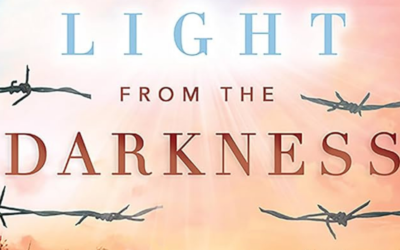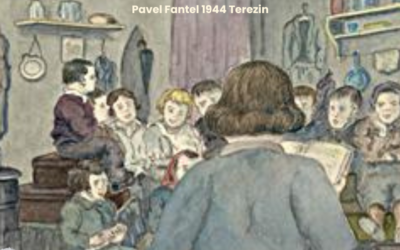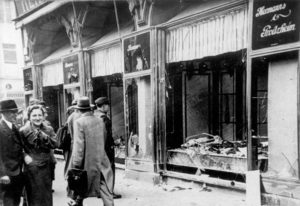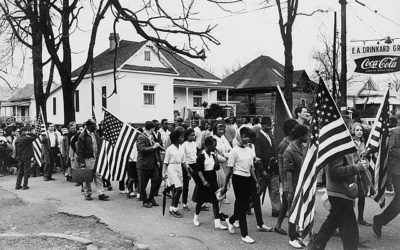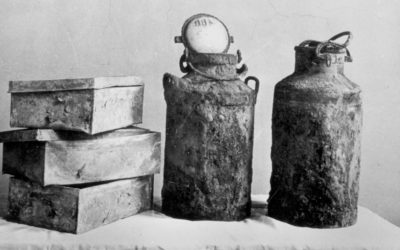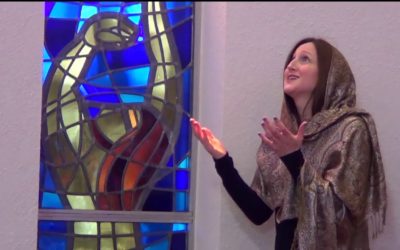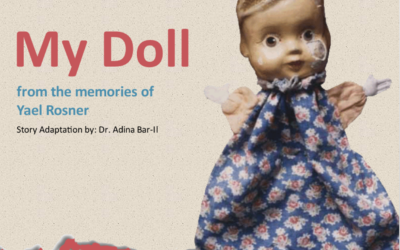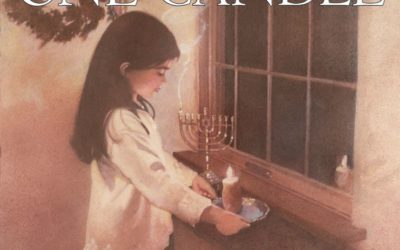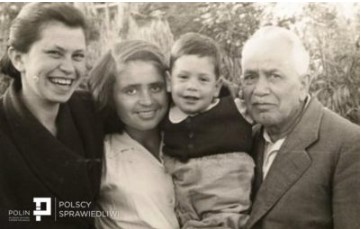Through the alchemy of storytelling, the ashes of despair in the hallowed pages of survivor testimonies are transformed into flames of remembrance, illuminating the path towards a more compassionate and interconnected world. [redirects to the Times of Israel]
Tools for Creating Engaging Holocaust Commemorations for Jewish and Interfaith Audiences
The seder is the perfect model for developing a Holocaust commemoration. At the seder, we tell the story of our survival from a great tragedy ….. In a Holocaust commemoration we want to tell the story of our survival from another great tragedy. [Originally published in the Jewish Educator.]
Using Storytelling to Personalize Holocaust Education in the Classroom
Learning to be a Holocaust storyteller means learning to take a primary source such as testimony, memoir, or diary, and to retell the story told in that testimony in a compelling way. [Originally published in the Jewish Educator.]
Broken Glass, Preserved Memory
Please don’t let them find out I’m Jewish. Please don’t let them find out I’m Jewish. It is November 10, 1938, and Margot Gunther (Jeremias) is riding the train to school. It’s an hour ride from her home in Hoffenheim, Germany to Heidelberg where her school is. [Redirects to the Times of Israel]
How to Teach Race Relations: Lessons from Holocaust Education
A group of 7th graders sit in a circle, white kids in the center, black and brown kids on the outside. They have been sorted by a “privilege” score assigned based on the color of their skin. The white students are trying to find a way to apologize to the students of color for the sins of their ancestors. [Redirects to the Times of Israel]
Teaching the Holocaust through Story
How do we even begin to understand the experience of the Holocaust? How do we give our students insight into something we can barely comprehend? [Redirects to the Times of Israel]
Our history can become our legacy
If the only stories we learn are Anne Frank’s and Elie Wiesel’s, then we will have a very shallow understanding of the Holocaust. There is a richness and a visceral connection to the stories of Frank and Wiesel, but these are but two among a galaxy of stories that comprise the individuals who experienced the Holocaust. [redirects to the Times of Israel]
Teaching the lessons of the Holocaust through storytelling, not allegory
Stories are the bounty of Jewish culture. The Torah builds from our origin with history and lessons for living and dying. If the Torah is a tree of life, then storytelling is its roots. We teach our values to our children through the stories of our ancestors. What, then, do we do when we need to tell stories that are difficult to hear? How do we apply our tradition of storytelling to the story of the Holocaust? [Redirects to the Times of Israel]
How to talk to your kids about the Holocaust
“Mom, what do you know about the Holocaust?” You swallow, take a deep breath, play for time, your mind racing. “They’re not old enough to know about this,” you think to yourself frantically. “Can’t I hold on to their innocence just a little bit longer?” They’ll never be old enough. No one is old enough to really deal with the atrocities of the world. I know I’m not. But ignoring evil does not make it go away. Ignoring evil gives it space to grow. We must face evil, and we must help our children to face it. [redirects to the Times of Israel.]
Americans, the Holocaust is not about you
How do we tell the story of the Holocaust? Here in America, the Holocaust is taught from a distinctly American point of view. The story of the Holocaust typically begins in 1938, with a sudden explosion of hatred that penetrates the American isolationism. The story ends in 1945, when brave American soldiers throw open the gates of the concentration camps. “You are free,” they cry, and, the story implies, everyone goes home again. [Redirects to the Times of Israel]


